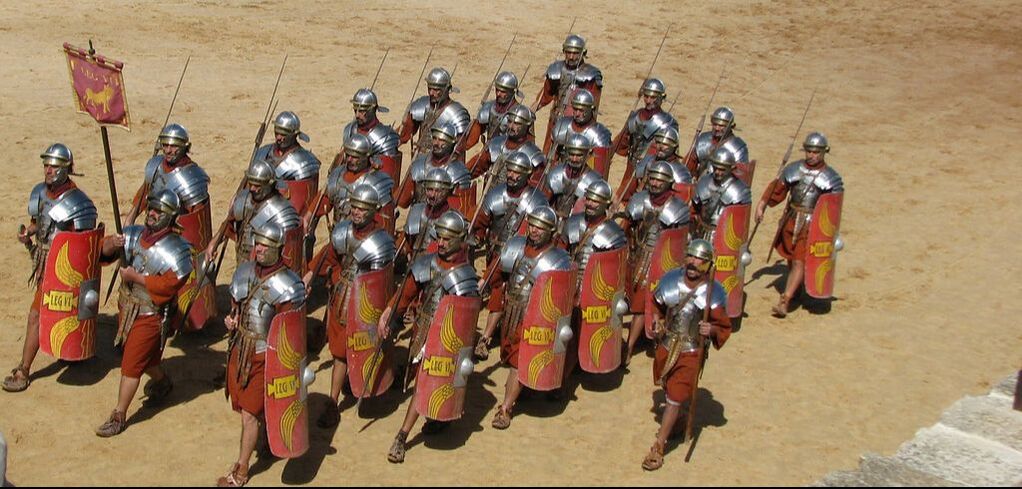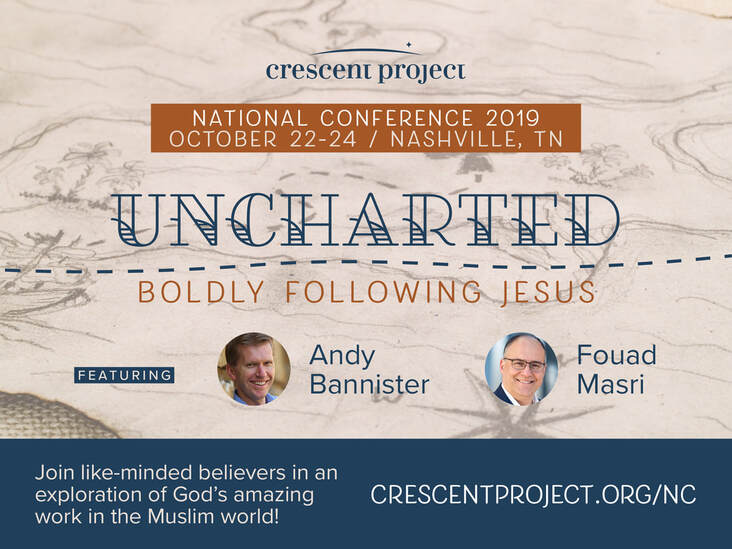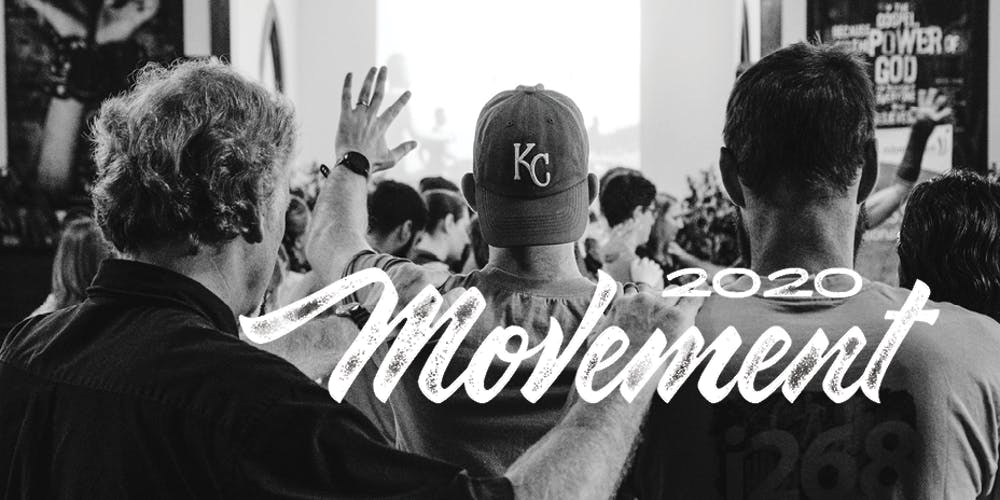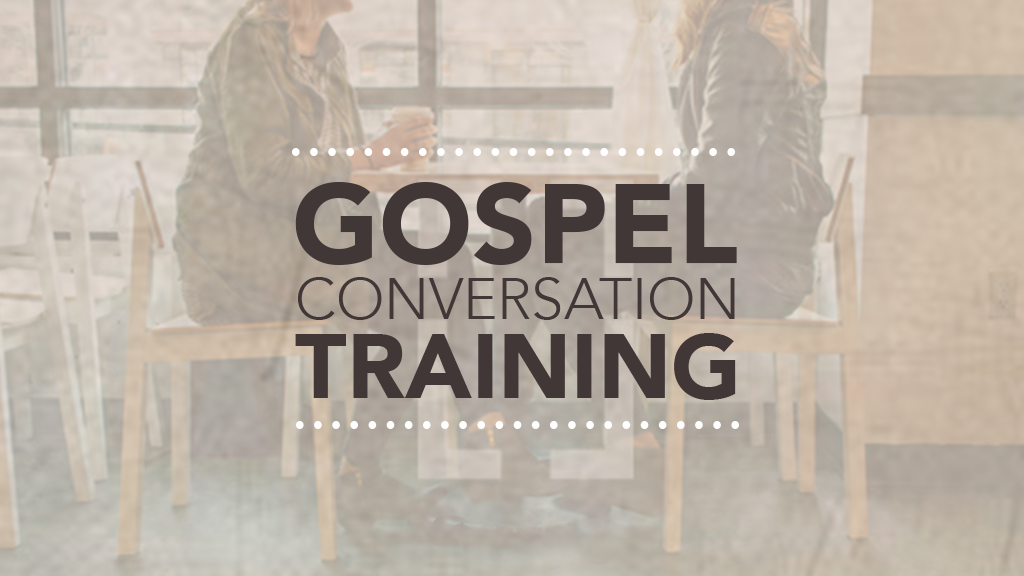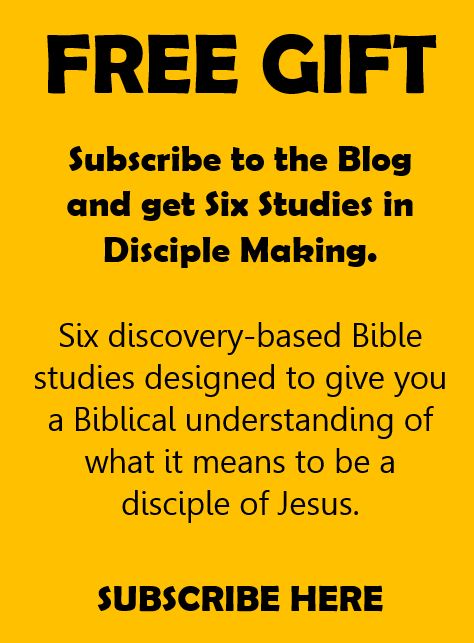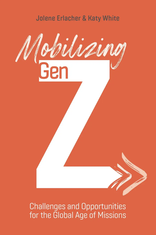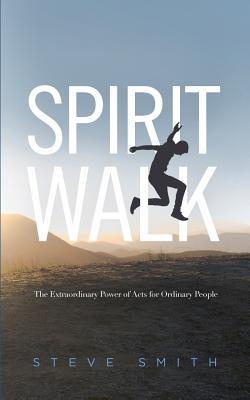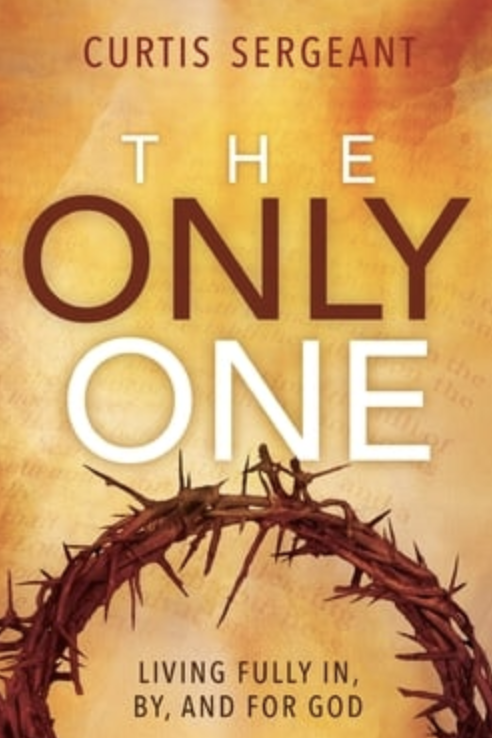|
“The Bible has been changed.” It was an assertion I’d heard before. I’ve heard it from nearly every Muslim friend I’ve talked about the gospel with and so I wasn’t surprised when my new friend John tossed it into our conversation. We’d been talking and as is often the case, something he’d said reminded me of a story from the scriptures. For probably the fourth time in our conversation I’d gone to the Bible and shared a passage or a story, a proverb or a psalm. There are a number of helpful responses to the claim that the Bible’s been changed. Indeed, the ability to defend the validity of scripture is a necessary skill that all involved in Muslim ministry must acquire. Thankfully there are great resources for equipping believers in this skill [see Fouad Masri’s small booklet “Is the Injeel Corrupted”] And perhaps in a later post I’ll unpack a few of those. It has often been said that one can win the argument but loose the person. It seems there are times when this is used as an excuse for shoddy theology and weak-kneed gospel proclamation, but it does reflect Jesus’ instruction to do unto others as you would have them do unto you (Matthew 7:12). Abdu Murray is an example of someone who does this well. His winsome proclamation and defense of the gospel is a living example of 1 Peter 3:15 where believers are exhorted to “honor Christ the Lord in our hearts as holy, always being prepared to make a defense to anyone who asks you for a reason for the hope that is in you; yet do it with gentleness and respect.” In his hour-long presentation at the Defend Apologetics Conference, Abdu begins with an encouragement from Paul’s letter to the Colossians. Colossians 4:5-6 says, “Walk in wisdom toward outsiders, making the best use of the time. Let your speech always be gracious, seasoned with salt, so that you may know how you ought to answer each person.” Murray points out that Paul does not say, ‘each argument'. Arguments are plentiful and they deserve answers, but as followers of Christ, filled with the Holy Spirit, we are encouraged to answer ‘each person’. My friend John is a person. He is fearfully and wonderfully made. He was created in the image of God, a God who knows every hair on his head and who willingly went to the cross for him. And so we must take care not to dehumanize our non-believing friends into caricatures of the arguments they espouse. While rude caricatures and gross mischaracterizations are the tenor of these days, as disciples of Jesus we must love non-believers as Christ loves them. We must have the First Corinthian’s thirteen kind of love that is patient and kind. We must not envy or boast or be arrogant or dishonor them. We must not insist on getting our own way. We must not get angry easily or hold grudges and we can’t rejoice in their wrongdoing but rather must rejoice in the truth. And we protect our non-believing friends, trusting with a deep hope that never gives up. Because love won’t fail. And yes, because the god of this age has blinded the minds of unbelievers, we must be prepared to help remove those blinders with sound teaching, good questions, gentle rebuke and prayerful perseverance. But we must do all of this first and foremost, in love. Here is Abdu Murray's talk.
0 Comments
This week I'll be co-teaching a workshop on refugee outreach at Crescent Project's National Conference. My colleague James will begin that workshop with a short devotional from Luke chapter 7 where Jesus is asked to heal a centurion's servant. It's a story that has caused me a fare amount of conviction the past few weeks as I've meditated on it. I'll hope it does the same for you. Jesus has just finished teaching the masses when a group of elders from the Jewish synagogue show up to ask him to come and heal a Roman centurion's servant who has fallen ill. Roman centurion's were the senior officers of a legion of Roman soldiers. Roman soldiers who are occupying Israel. Roman soldiers who have brutalized and oppressed the Jewish people. Already this story is a bit crazy. But when these elders get to Jesus they don't just ask, they plead with Jesus saying, "He is worthy for You to do this for him, for he loves our nation, and he is the one who built us our synagogue." Jesus goes with these elders and the story ends with the centurion telling Jesus he doesn't need to come, he just needs to say the word. The centurion understands authority and Jesus famously praises the man saying, "I tell you, not even in Israel have I found such faith." This is the part that is most often the focus of the story but let's go back to the request of the Jewish elders. In every respect, the Roman occupation has been a terrible blight on the Jews in Israel. And yet here are the oppressed pleading the case of a man who is supposed to be their enemy. Why? Because he loves them. He has poured out his love in generosity. He has lived a life among them that has demonstrated extraordinary love. And the question James challenges us with is this: Is your church living in such a way with the refugee and immigrant communities in your context that if the government came to shut your church down, would refugees and immigrants be the first ones to come and plead your case? Would refugees in your community come out saying, "No, you can't shut this church down! They've loved us. They've helped us with extravagant generosity." Do our churches have a centurion's reputation? Crescent Project is LIVE STREAMING all main sessions! FREE!
THEME: Uncharted: Boldly Following Jesus
Register for FREE TODAY and claim your access! Here's the process:
Daily sessions times begin:
Gather some friends and join us! How did you learn to ride a bike? Did your dad sit you on the couch in front of the TV and say, "Here, watch four hours of the Tour de France. That will do the trick." Probably not. You most likely did watch older brothers or sisters ride bike however. It looked fun and if you were like most kids, you wanted to ride too. Learning to ride bike probably looked more like your dad - or in my case, older brother - running along beside you, one hand holding firmly to the back of your seat to help you balance as you started pedaling and getting the feel of things. That firm grip was released and those first rides certainly included a crash or two followed by comfort and the encouragement to get back in the saddle. In short order, you mastered the art and skill of bike riding. You may not be ready to race in the Tour de France but you are more than capable of a ride across town. You have achieved unconscious competence in the bike riding department. Our journey toward bike riding stardom highlights the basic training principles that are required to make disciples who make disciples. We call these the MAWL principle. Model, Assist, Watch and Launch. This is the basic process through which we all learned to ride bike and it is the model of training that we see Jesus using and later Paul. This basic principle is applied in all good training that leads to actual competence and reproduction, to disciples having the confidence and competence to obey Jesus and make disciples. MODEL Modeling requires us to set the example by actually doing what we want others to do. We see Jesus doing this in his ministry - he is preaching, healing, casting out demons, abiding with the Father, praying, setting strategy. He has taken the disciples with him and they are watching his example, asking questions and asking for deeper teaching. Nathan Shank in Four Fields of Kingdom Growth comments that "What a disciple does in the first three months of faith, he or she will reproduce throughout their walk. If the disciple is asked to passively observe the work of the church, passivity will likely be the "DNA". If the disciple is expected to aggressively pursue friends and loved ones, reproducing what has been trained [modeled], multiplication is set in motion." What we model is important. ASSIST Assisting requires to release our disciples to actually do what it is we want them to do by themselves. We have to put them on the bike. We assist them but they are doing the work. Again we see Jesus doing this with the disciples. Who is going to feed the 4,000? They are. Jesus is going to assist, but they are going to go out and serve the food. Who is doing all the baptizing? They are. Jesus is there and even gets blamed for the baptizing, but the Bible is clear that it is actually his disciples who are doing the work. WATCH Assisting can quickly shift into watching. For some things, assistance might take longer than others and there is rarely a clear line of when we shift from assisting to watching, but shift we must. Our disciples must recognize our release of control so that they are empowered to do the work themselves. In Paul's second letter to Timothy he says, "And the things you've heard me say in the presence of many witnesses, entrust to reliable people who will be qualified to teach others". Paul is watching from afar, hearing reports and coaching Timothy to continue to do what he is doing. And of course your disciples will occasionally crash. Like the first time your dad released your seat and you scrapped your knee as you skidded sideways to the ground, those you are training will make mistakes. They will make messes. They will FAIL. And you will have the grace to pick them up, reassure them that they'll be fine and get them back in the saddle. Don't worry, the kingdom won't fall apart with one mistake. Mistakes are the catalyst for maturity when treated with grace and love and Biblical application. LAUNCH There then comes a time when we must launch our disciples out to run the race on their own. Jesus launches his disciples despite some of them doubting, to go and make disciples of all nations! We see Paul charging the Ephesian elders to stand up and continue the work without him as he heads back to Jerusalem for one final visit. MAWL principles are as old as the Bible but our modern teaching techniques which sequester training in classrooms and pews make it difficult to apply them. Knowledge acquisition has in many ways trumped actual application and competence. And so too often I've simply told people what they ought to do.
I've given hour long seminars. I've preached sermons. I've shared good ideas. But in the end, I've been discouraged by the results. The people I've taught walked away with a head full of knowledge but no real idea how to actually apply that knowledge come Monday morning or no confidence that they actually could. The MAWL principle is what we see in the Bible. And it just makes sense. Everywhere in life where we want to master a skill, these ideas are the way to master them. If you wanted to become an electrician or a mechanic or a carpenter in the past you apprenticed yourself to a master. Modeling, Assisting, Watching and Launching were just what naturally happened every day that you showed up at the shop and worked alongside your boss. If we want to see disciples become disciples who can and are making disciples who in turn can and are making disciples, then we must spend more time training with MAWL principles. Who can you MAWL today? Crescent Project’s National Conference is an annual gathering of leaders from all over the United States, coming to be inspired, encouraged and equipped by Crescent Project. National Conference presents a unique opportunity for equipping Christ-followers from around the country to connect with some of the most spiritually curious people on our planet: Muslims. National Conference gives an inspiring snapshot of our changing times, demographics, and handles on understanding Islamic basics and identifying ways any church in any community can help lead the charge for cutting-edge outreach in their region, rallying other churches in the process. The conference offers a wide assortment of workshops along with general sessions led by experienced leaders and former Muslims. National Conference is designed to equip Christians who are new to Muslim outreach as well as those who have years of experience. Event dates: October 22-24 Location: Church of the City, Spring Hill, TN (Just 25 minutes south of the airport, Nashville, TN.) Multiply: The Vision Summit The Vision Summit is a discipleship event designed to cast vision and equip disciples for local, national, and global mission. Through it, the Multiply team seeks to build upon the dreams, spiritual gifts, and passions God has placed in His people. The weekend will be surrounding God's Kingdom coming, and how we are to take part in the advancement of His Kingdom. If you are in the Midwest, don't miss this opportunity for training and equipping. Event Dates: Fri, Oct 11, 2019, 5:00 PM – Sun, Oct 13, 2019, 3:00 PM CDT Location: Cross Point at Oasis Church - 23813 West Trail West Road - Plevna, KS 67568 Gospel Conversation Training Have you ever wanted to have a gospel conversation with someone but didn't know where to begin? Gospel Conversations training explains not only why but also how to have these conversations across various contexts and we'll give you plenty of practice. During this one day training, you will learn what to do and say to share the good news of the gospel with competence and confidence. This training includes a time for practice and follow-up processes for strategy and accountability. Event Date: Saturday October 19, 9 am - 4 pm Location: Mitchell Christian School, Mitchell, South Dakota Heart For Muslims Heart for Muslims’ mission is to equip Christ-followers and connect them for service, ministering to our Muslim neighbors in the Name and Love of Jesus Christ. The vision is to eliminate the fear of Islam and free believers to boldly minister to our Muslim neighbors. Date: Saturday November 23, 9 am - 4:30 pm Location: Calvary Baptist Church - 123 W 57th St, - New York City, NY Do you know someone who could benefit from one of these conferences? Be sure and take a moment and pass this article on to them. |
The E2E Community
Categories
All
Good Books
Archives
April 2024
|
Proudly powered by Weebly


